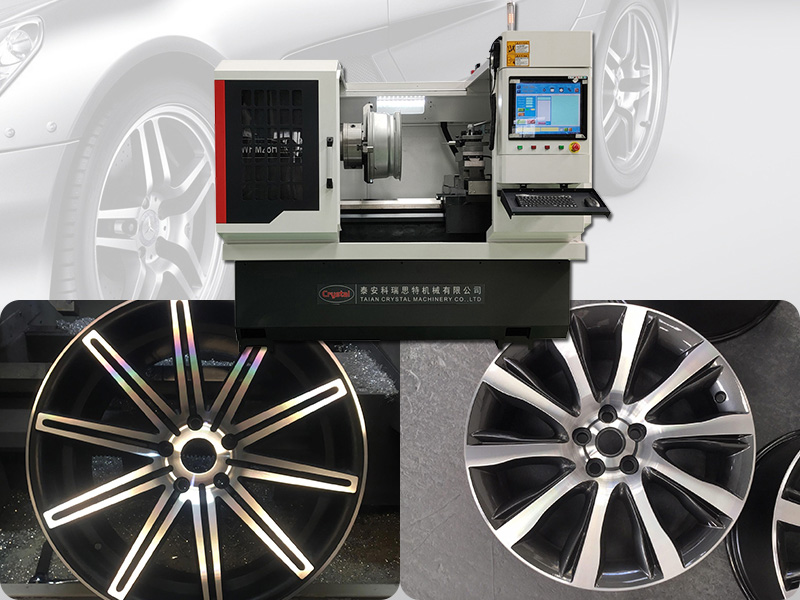When you’ve invested in a set of alloy wheels for your car, you want to keep them in good condition, helping to maintain the look and value of your car. Unfortunately, accidents do happen. Scuffed alloy wheels are an all-too-common occurrence, and when your alloy wheels do get damaged, you want to get them repaired as quickly as possible. There is nothing worse than persistent alloy wheel damage on your car.
WHAT DOES WHEEL REPAIR USUALLY ENTAIL?
The process of wheel repair depends heavily upon the nature of the damage sustained and the type of wheels your car has. Furthermore, while there is a set standard for proper wheel repair, every car repair shop will handle repairs differently in their own way, with their own tools and unique applications. It is important to find a shop with a wheel repair machine to repair your damaged wheels.
Wheel repair may involve sanding, putty, and paint for minor or deep scratches, depending on the level of damage. Other wheels that have become bent or more severely damaged will need to be re-bent back into place, which may involve intense heating, welding, or molding the wheel back into shape. In the most severe cases, wheels may need to be replaced.
TYPE OF MATERIAL THE WHEEL IS MADE OF
The type of material that the wheel is made of plays a huge role in whether or not it will be able to be repaired or not. Some materials handle cracks, scratches, and dents better than others, and sometimes repair just isn’t the right answer—an entirely new wheel may be in order. However, these are the most common types of materials that wheels are made of: Plastic, Steel, Chrome-plated, Aluminum alloy
Each of these materials has varying degrees of pliability and elasticity, causing them to range in their ability to be repaired—not to mention the cost of repair. For instance, aluminum alloy wheels are more pliable than plastic wheels, and will more easily be able to be repaired and fixed.
TYPE OF DAMAGE- CAN THE WHEEL BE REPAIRED?
Besides the material the wheel is made of, the nature of the damage is a critical factor to consider when repairing a wheel. Fine scratches are usually easier to remove and wheels can easily be restored. Deeper scratches and gouges may be more challenging to repair and may necessitate a new wheel. Surprisingly, dented or bent wheels aren’t always beyond repair. They can often be molded, heated, or welded back into their original form.EXTENT OF REPAIR
As mentioned before, the extent of the repair depends heavily upon the extent of the damages sustained and the type of material the wheel is made of. Repairing wheels requires special tools and skills to carry out custom paintwork, polishing, welding, and other repair tasks.
IS IT WORTH THE COST?
Some wheels may be unable to be fixed, or may be too expensive to fix. For instance, chrome wheels involve a higher level of skill to repair, and often cost more to fix, which is why many drivers with chrome wheels often choose to replace them if they’re substantially damaged. wheel repair may not be the right solution to the problem. In many cases, the question you’ll need to answer is: can this be repaired, or should it be replaced? With the help of experts in the field, you’ll be able to determine whether or not your wheel is worth repairing. In certain cases, the cost of a repair can greatly outweigh the cost of a replacement wheel, and in such cases it’s best to have a professional assess the damage first.
WHAT WE CAN DO TO HELP YOU
We have provided excellent wheel repair machine for over 20 years. Whether it is straightening or wheel scratch repair, our machine always ensure that drivers are 100% satisfied with the work done by their cars repair shop. It can achieve mirror finishing, different density textured finishing etc and make your old and damaged wheels to shiny again.






